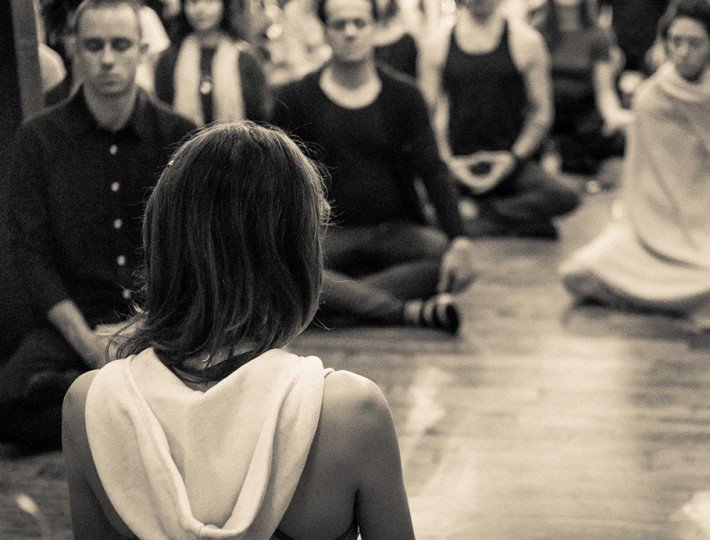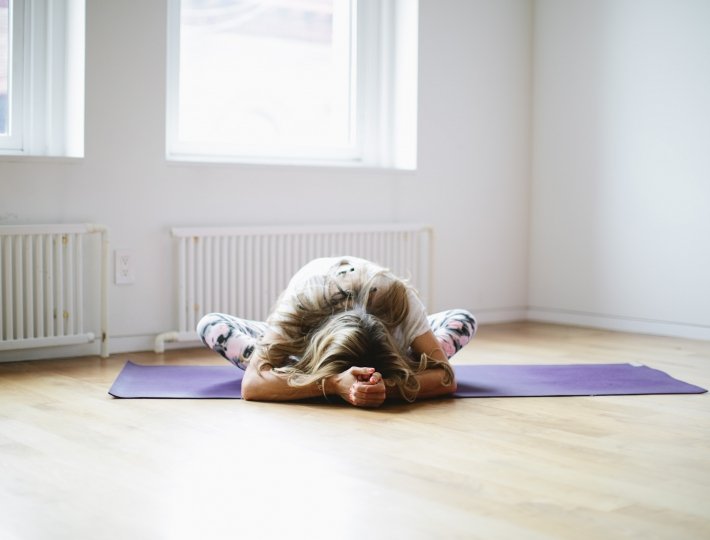The practice of self-care is not something everyone is easily able to prioritize. By the time we’ve finished at work, picked up the kids, stopped at the post office, grabbed groceries, and sat down for dinner, the day is nearly done. We set intentions to get in shape, eat right, and live healthy, balanced lives, but carving the time for structured self-care can be challenging.
Definitions of self-care can vary, depending on circumstances. The Maslow model for the hierarchy of needs tells us that there are varying levels of experience that comprise self-care. There are the most pressing, physiological needs, which include the basics—food, water, sleep. Then there are the more subtle levels: safety, love/belonging, self-esteem, and self-actualization, which require consistent attention and nurturing to bolster.
In order to function at your highest level, it’s important to satisfy your body’s most fundamental needs. Pillars that lay the groundwork for good health include rest, breath, and movement. These elements of self-care can increase relaxation and overall feelings of wellness, which in turn boosts immunity, brain function, and physical and emotional balance.
Each activity supports vitality and harmony; the key is routine and maintenance. “Your non-negotiable practice might be yoga, running, or meditation, but what’s crucial is that you determine what your practice is and do it every day,” says Erin Casperson, a Kripalu Yoga teacher and Ayurvedic Health Counselor. Taking the time to care for yourself could also have a ripple effect. “Serving others from a place of nourishment rather than depletion will teach future generations about self-care, so they too can serve with a full heart.”
Rest
Everyone knows sleep is necessary for human function, and there is a growing body of scientific evidence about exactly how sleep affects our health. A lack of sleep can give rise to depression and anxiety. The well rested are less likely to miss work and are more likely to maintain healthy weight. “Adequate sleep is one of the main pillars of health. The most restorative sleep, according to Ayurveda and Western medicine, is between the hours of 10 p.m. and 2 a.m. A balanced Ayurvedic sleep routine is to go to bed around 10 p.m. at the latest and wake around sunrise at the latest,” says Casperson. Restorative practices activate the parasympathetic nervous system—also called the “rest and digest” system. Proper sleep, yoga nidra, and other restful states provide space for our nervous system to recalibrate and escape the fight-or-flight mode that often permeates our busy days.
Related: A Meditation for Personal Renewal
Breath
Research suggests that controlled breath work can lower blood pressure and heart rate. One fascinating study shows that meditation and meditative breathing can actually increase cortical capacity, specifically in the areas of the brain that control emotional, cognitive, and sensory processing. Attending to the breath is one of the simplest practices because you can do it anywhere. Here is a simple exercise to help you get started:
- Lengthen the spine, connecting your sitting bones with the chair, and lift the crown of the head to the sky.
- Gather your attention to the abdomen and inhale, expanding the belly first and then the ribs. Allow your stomach to be soft; don’t hold it in.
- Pause on the top of inhalation.
- Exhale against the ribs softly, and gently draw the belly back to the spine.
- Pause at the bottom of exhalation.
- Do 5 to 10 rounds to soothe rattled nerves, frustration, impatience, and restlessness.
Movement
Many studies have revealed the profound impact that movement and exercise have on our lives. Exercise can reduce the impact of stress, improve brain function and mental health, and help those struggling with addiction. With exercise, one of the keys is to set attainable goals that work for you in your daily life. According to Ayurveda, the hours between 6 a.m. and 10 a.m. are best for physical exertion, so starting the morning with some activity is an excellent way to get the day going. It could be 30 minutes of yoga, 30 minutes of walking, or a 20-minute run. Whatever you choose, be consistent.











Comments (1)